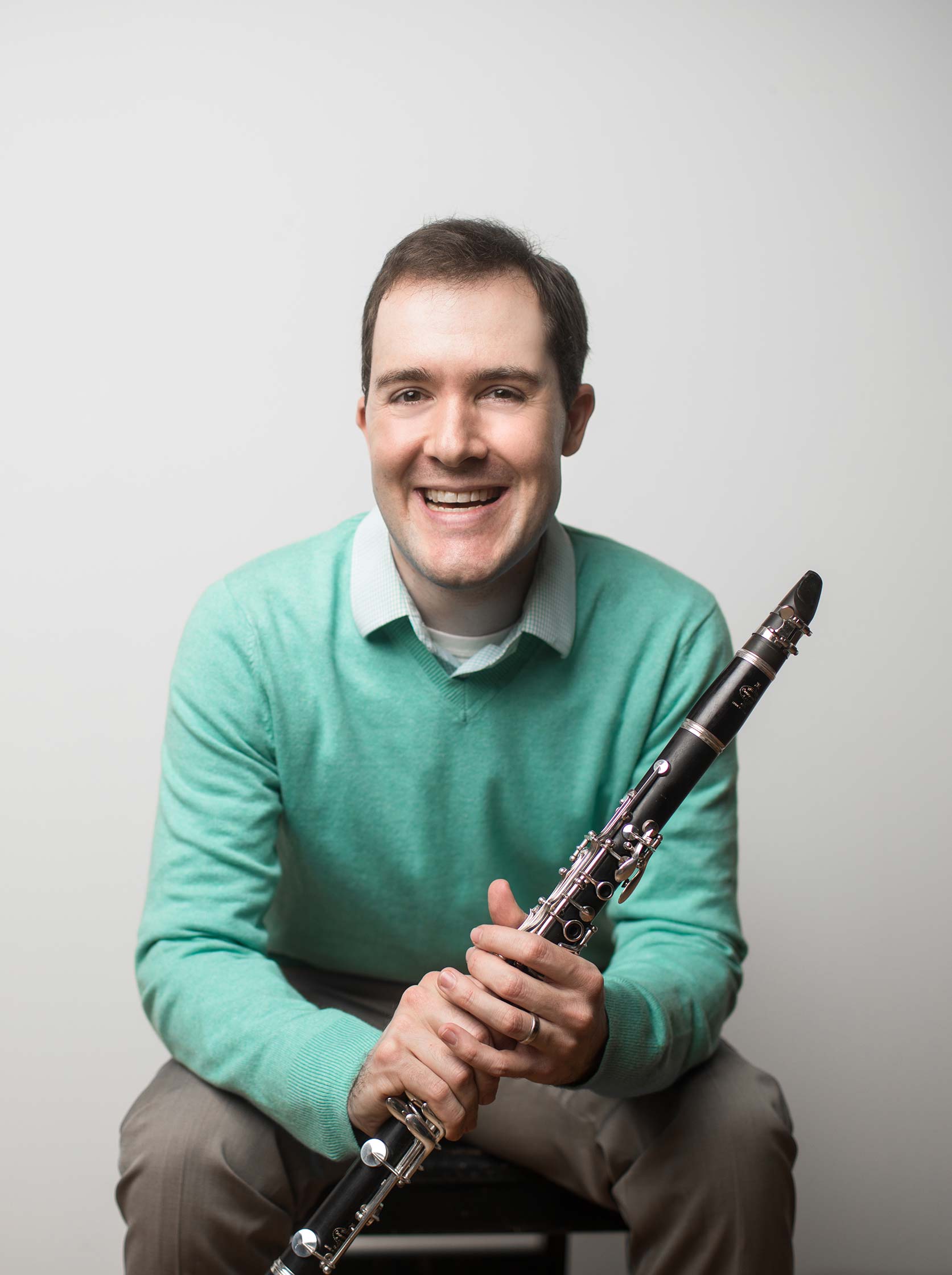As GSO principal clarinetist, Justin Stanley prepares to step into the role of soloist. He talks about musicality, inspiration, and how he flips performance anxiety on its head.
What inspired you to pursue a career in music and why did you choose your instrument?
I started playing the piano in first grade, but when we could start a band instrument in 5th grade, I chose the clarinet. It was the sound. I remember hearing the instrument…I really loved how soft it could play. At the same time, it can sneak in from nowhere and have a nice full sound. I loved the variety of sounds it can make.
Growing up, I took private lessons and was involved in the Fresno Youth Symphony, which made a big impact on my playing. When I was 16, I played with the National Honor Band at Carnegie Hall. It was my first trip to New York City; I remember how exciting it was to see all the city lights.
A lot of things shape your career trajectory, but I know for me that it was really inspiring to play with such a talented ensemble in such a special venue.
What early lessons did you learn that you still use today?
I think my favorite lessons were where we honed in on the musicality and phrasing…finding little moments that you can draw upon for maximum expression to make them really memorable. Actually, the Mozart is a perfect example. Clarinet players play this piece all the time, but you can study it for years and still learn new things. I’d have lessons where we’d spend the whole 60 minutes on the first 8 bars. For me, that attention to fine detail and where each line should go is really exciting.
In just a couple of weeks, you’ll be performing the Mozart Clarinet Concerto with the GSO. Tell us about this piece and what makes it so special.
I think one thing that makes the piece special is the variety of styles and emotions that Mozart explores. We have this really energetic and bubbly first movement that is so very much in his style. It’s got this incredible lightness and humor that pervades the entire movement.
The second movement is so special to me because I can use these long beautiful lines to make really magical moments. In particular, I’m thinking about toward the end…it’s a familiar melody, I think a lot of people will recognize it. But as a performer I’m trying to find a way to make the melody memorable and very expressive. For me, I like to play extra soft at the end…it harkens back to why I was drawn to the instrument when I first heard it…that unique softness. I find that if I can really play extra soft right towards the end of the movement, it gives me goosebumps. I hope the audience will feel some of that as well.
The third movement is this really fun rondo to end the piece with. It’s super fun to play, and there’s a lot of back and forth between the clarinet and the orchestra. I’m really looking forward to sharing it.
Do you deal with performance anxiety?
I’m actually a pretty confident player. I mean, we all have some nerves before a concert, but that’s one thing that makes performances extra exciting. I try to make sure that I take deep breaths and rely on the extra energy to make the performance something special. I try to be really focused and let the music go where it goes…take it where it seems natural. It’s preparation beforehand that gives me the confidence I need to give a strong performance. I’ve been working diligently to prepare!
You can hear Justin Stanley take the stage on February 24, when he joins the GSO to present Mozart’s Clarinet Concert alongside Brahms’s Second Symphony and Immerse, by Quinn Mason, a rising star in the world of classical composition.
Why your support matters
For over 72 years, the GSO has been dedicated to serving our community through musical enrichment and education. From scholarships for students in our youth orchestra, to providing sensory friendly concerts and outreach into underrepresented populations, we responsibly steward your donations to have the greatest impact across all of our programs.


